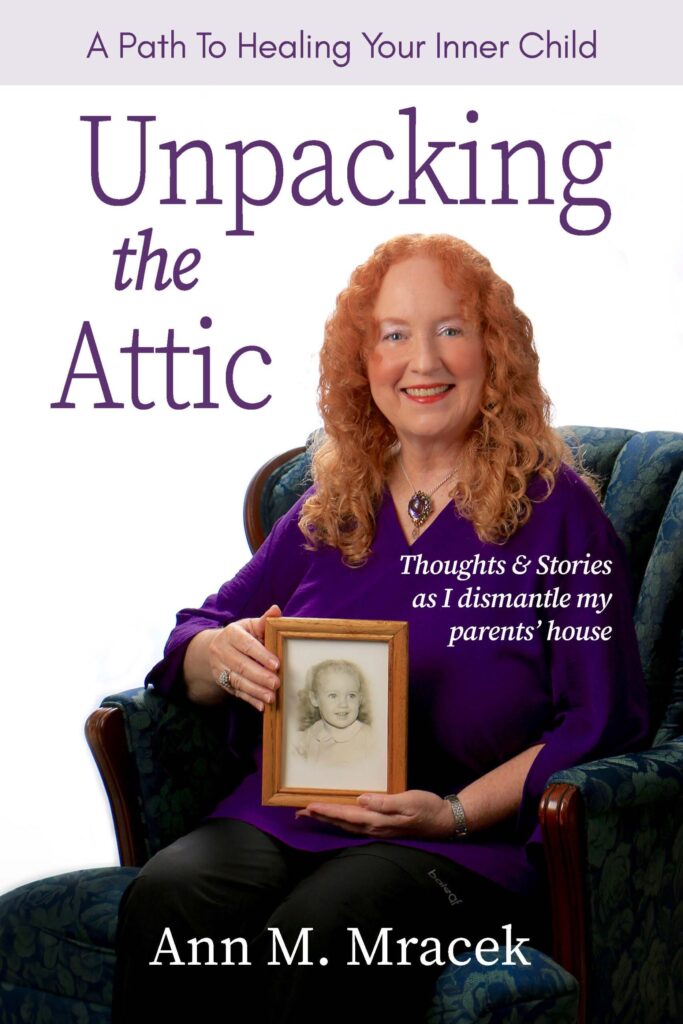Why, at times our parents forget to comfort us as a child when we need them? Yes, it is true that many of us think that our parents are our protectors—our first line of defense against the boogeymen that hide under the bed or the monsters that lurk in the shadows of our nightmares. But sometimes, the very people we look to for comfort and safety aren’t quite sure how to provide it. Just like Ann M. Mracek has shared within the pages of her memoir, “Unpacking the Attic: A Path to Healing Your Inner Child,” how one cold night she had a nightmare where she saw a train ride at night in Korea with a woman holding a chicken next to me, and looking down at the filthy floor to see huge boots on my feet which sacred her, sharing this dream with her father at night, all she gained in response to her father is not to get those anymore. Now, imagine how odd it can be for one not to see something particular in her dreams that is not in her hands.

After sharing her childhood experience with her readers, she decided not to comfort her child if she ever becomes confused or frightened. In fact, she will stroke back her strawberry blonde curls and kiss her forehead to open her third eye by letting her embrace her gifts.
The Protector without a Map
My dad, like so many others, was great at handling practical problems. He could fix a leaky faucet, build a treehouse, or chase off a stray dog that wandered too close. But when it came to the intangible fears of my nightmares, his tools were powerless. He’d wrap me up in an extra blanket, pat my back, and tell me to go back to sleep. In his mind, that was enough—his job was done.
The Silent Struggle of Fear
There’s something uniquely isolating about being a child afraid in the middle of the night. It’s not just the fear itself—it’s the loneliness of knowing that the person you want to comfort you most doesn’t quite know how. We don’t blame them; we understand that they did their best, that they were fighting their own battles—often battles we never knew about. But as kids, we still felt the weight of the silence, the empty space where comfort should have been. She learned to cope in her own way. She covered our heads with blankets, built fortresses of pillows, and made friends with the nightlights that cast soft, reassuring glows in the darkness.
Finding Comfort in Ourselves
Ann’s story deeply resonates with this journey of self-comfort. She shares a memory of waking up cold one night, prompting her dad to retrieve an old army blanket to keep her warm. However, that blanket brought with it more than just warmth—it carried memories of Korea. That night, Ann dreamed of being on a train in the Korean night, next to a woman holding a chicken, staring down at her own feet to see enormous boots that didn’t belong to her. When she told her dad about the dream, he quickly took the blanket away, never to be seen again. Ann had inadvertently tapped into his wartime memories, memories he never wanted her to carry. He simply said, “Best you don’t get any more of those,” but that was the extent of his comfort. He couldn’t shield her from the echoes of his past; he could only remove the source and hope that would be enough.
But what her dad did not do was comfort the frightened, confused child at that moment. Instead, she has learned to do that herself. She says, “I will stroke back her strawberry blonde curls and kiss her forehead to open her third eye. I will say to her, ‘Embrace your gifts.’” This powerful act of self-love speaks to a profound truth: sometimes, we must be the ones to give ourselves the comfort that was missing.